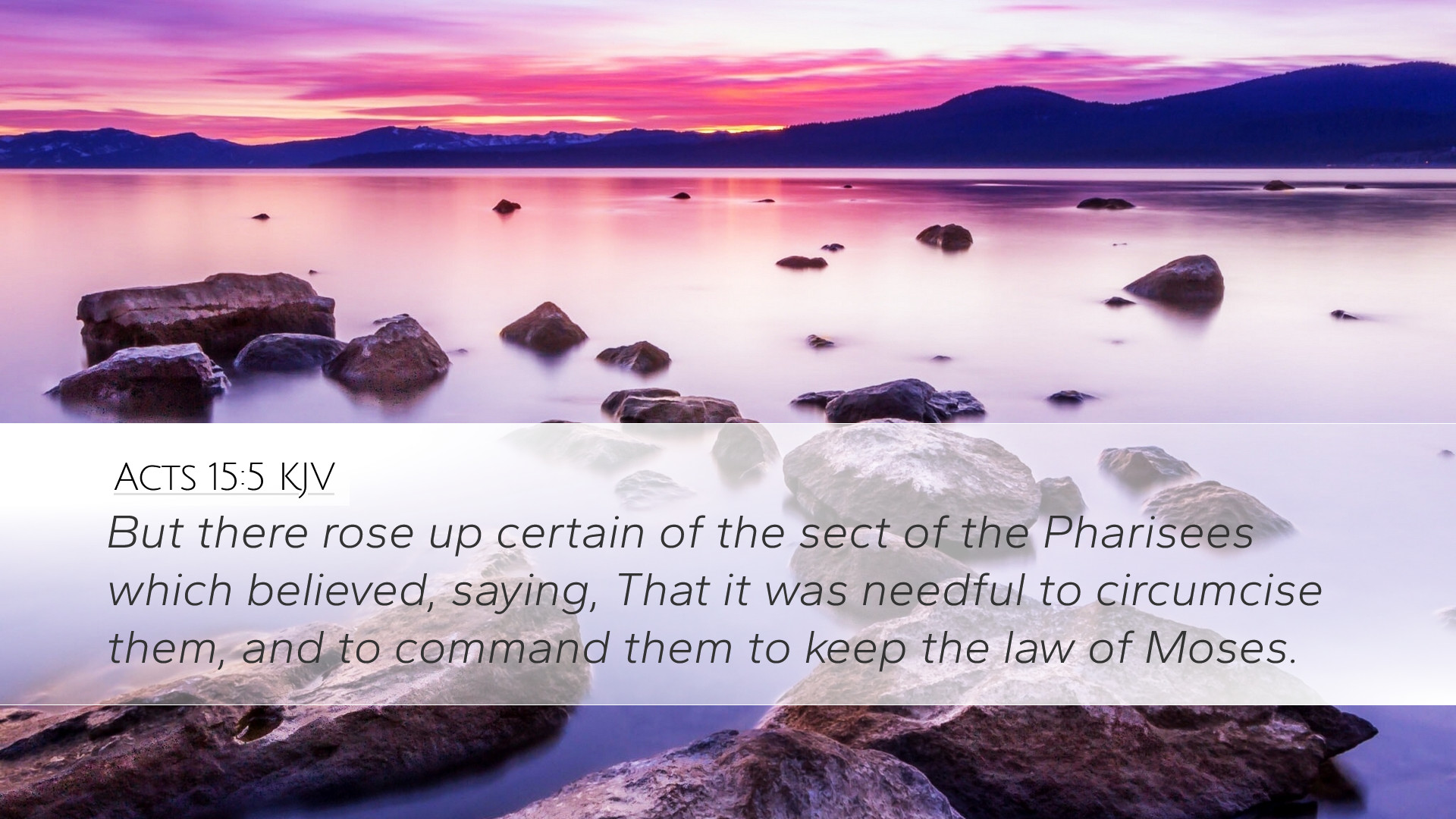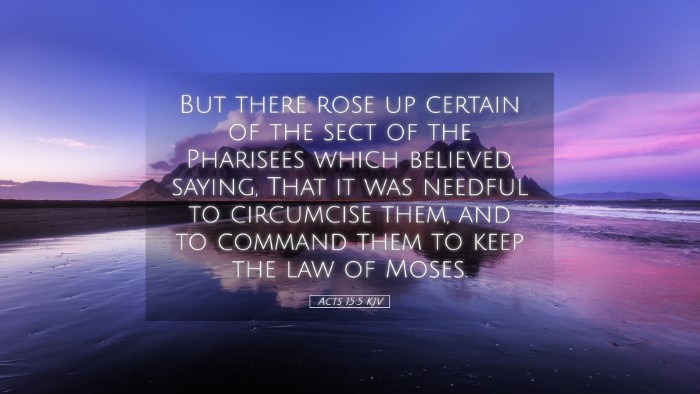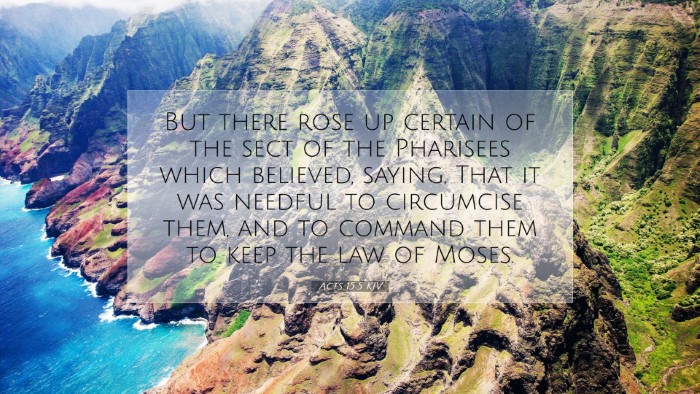Commentary on Acts 15:5
Acts 15:5 states:
"But there rose up certain of the sect of the Pharisees which believed, saying, That it was needful to circumcise them and to command them to keep the law of Moses."
Introduction
This verse is pivotal in the narrative of the early church as it sets the stage for the Jerusalem Council, a crucial moment regarding the relationship between Jewish traditions and Gentile believers. The conflict over the necessity of circumcision and adherence to the Mosaic Law raises fundamental questions about grace, faith, and the nature of salvation.
Historical Context
The early church was largely composed of Jewish believers who were navigating their faith in light of new revelations through Christ. The Pharisees' belief that adherence to the Law was essential reflects their background and the traditional Jewish understanding of covenant with God. Understanding this context helps interpret the tension that arises in the text.
Matthew Henry's Insights
Matthew Henry comments on the gravity of the dispute that arose in the early church. He notes:
- The Nature of the Conflict: The Pharisees' insistence on the necessity of circumcision indicated a struggle between law and grace.
- Believers' Zeal: Even those within the church were still clinging to former norms, suggesting a deep-seated struggle to understand the implications of Christ's fulfillment of the law.
Henry emphasizes that the Pharisees, despite their previous attachments to the law, were now believers, showcasing the power of truth to penetrate hardened hearts.
Albert Barnes' Reflections
Albert Barnes elaborates further on the significance of the Pharisees' position:
- Pharisaical Influence: The presence of these believers from the Pharisaic sect highlights how entrenched traditions can influence new movements.
- Legalism versus Freedom in Christ: Barnes points out that the demand for circumcision represents a regression into legalism, undermining the core message of freedom that the Gospel brings.
He asserts that the early church had to confront these legalistic tendencies firmly, as the presence of such beliefs could hinder the growth and effectiveness of the Gospel message among Gentiles.
Adam Clarke's Commentary
Adam Clarke recognizes the tensions present in this verse with keen analytical insight:
- Contextual Examination: Clarke analyzes the Pharisees' perspective, stating that their views stemmed from a genuine belief that retaining certain practices was essential for obedience to God.
- Potential Divisions: He warns that demands like circumcision could lead to fractures within the body of Christ, creating unnecessary barriers to inclusion.
Clarke concludes that the apostles' response to these demands would critically shape the theology and practice of the church moving forward.
Theological Implications
Acts 15:5 challenges the theological understanding of salvation and the role of law. The insistence on circumcision as a requirement for salvation contrasts sharply with the New Testament's emphasis on faith alone.
- Grace vs. Law: The verse indicates the ongoing struggle to balance grace with the expectations of the law. It serves as a timely reminder that while the law is good, it cannot produce righteousness.
- Inclusive Nature of the Gospel: This conflict highlights the precepts of inclusion in the early church; the decision would ultimately affect not just Jewish believers, but also Gentiles who were coming to faith.
Application for Modern Readers
For pastors, students, theologians, and biblical scholars, this passage prompts self-examination regarding our understanding of grace and the interactions between tradition and faith in the contemporary church:
- Are there modern-day legalistic tendencies in the church? It is vital to reflect on how we may impose our traditions on others, countering the grace poured out through Christ.
- How do we navigate the inclusivity of the Gospel? The verse calls believers to consider how we welcome and integrate individuals from diverse backgrounds into the church community.
Conclusion
Acts 15:5 serves as a profound reminder of the early church's struggles, encouraging ongoing dialogue about faith, grace, and community. In a world often driven by legalistic standards, the message here remains relevant: true faith upholds grace and invites all to experience the love of Christ without the burdens of tradition.
As we engage with this text, may we be inspired to uphold the radical nature of grace and the transformative power of the Gospel as we navigate the diverse body of believers today.


